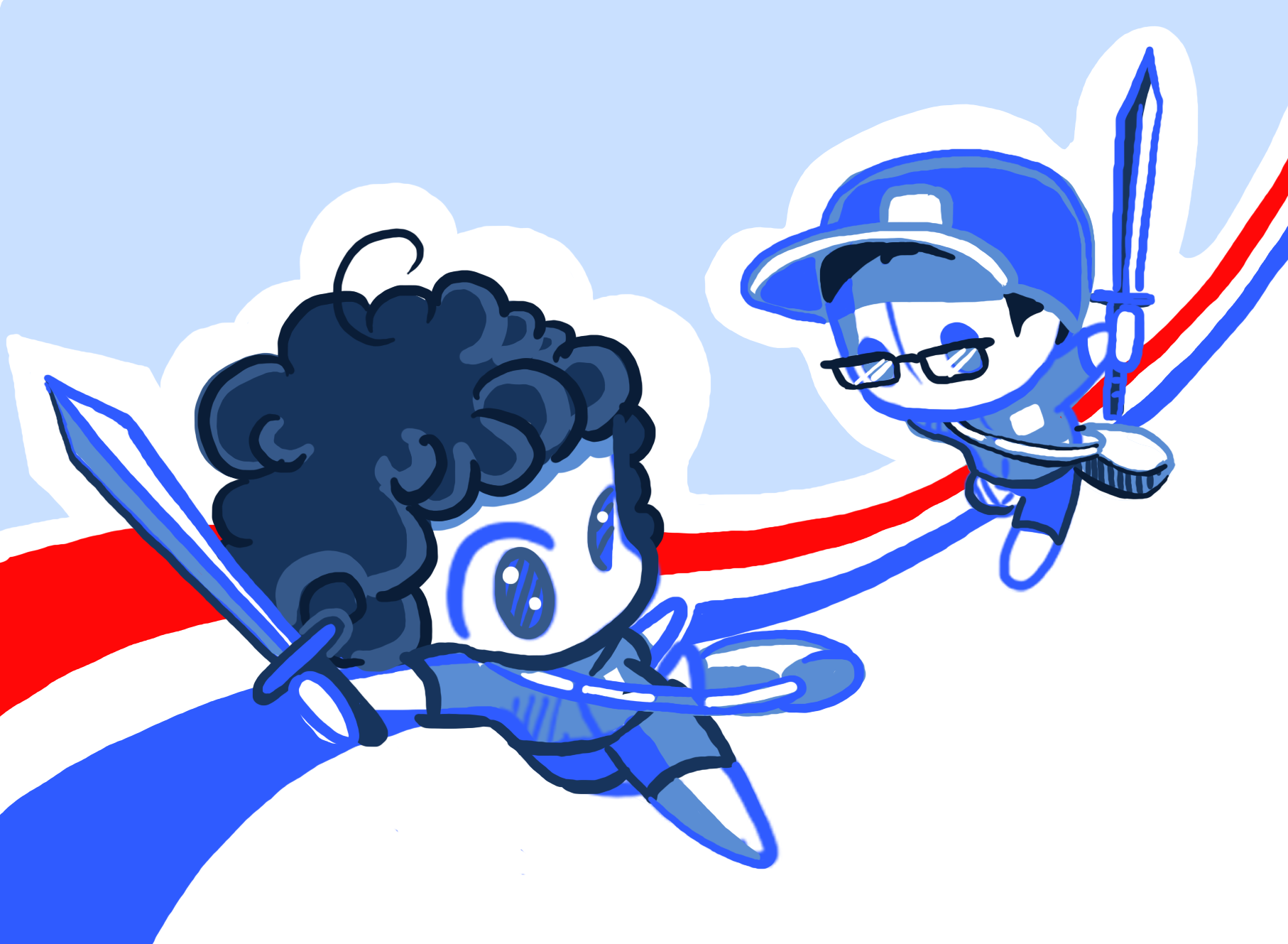
Dora Guo
“thank u for protecting our freedom,” the homemade card said. All sides of the card were so spattered with colorful star-spangled motifs that the Hallmark-aspirer could have repurposed it as a submission for the next flag design competition. While it wouldn’t have looked out of place in a care package for a soldier stationed abroad, it definitely seemed foreign in the hands of my foreign, Korean-immigrant father. Apparently, mailmen are cool now.
Whenever my elementary teachers would ask, “Who’s your hero?” my answer was always the same: Martin Luther King Jr. Obvious and undebatable — unless you’re a bigot. The thought of answering the prompt with my parents never crossed my mind. Not because I didn’t think they were worthy of my grade-school accolades, but because “They’re really cool and they feed me” felt like a very difficult thesis to argue for three pages. Why work so hard when an MLK Jr. essay was already written for me on Wikipedia? Love and affection are a lot more difficult to write about than the March on Washington.
So imagine my surprise when my dad showed off his homemade Hallmark, satirically declaring it a badge of heroism. The sender of the card was an elementary-aged kid on my dad’s regular mail route. My dad delivers his report cards twice a year and his Lego magazine four times a year. And it wasn’t just talk; the kid proved his allegiance to the postal service with a crisp, 20-dollar bill within the fold of the card. My dad — against the wishes of my 11-year-old sister, who requested to invest it in her piggy bank — returned the monetary portion of the thank-you gesture, but the star-spangled card still hangs on our fridge today. Not long after, my mother received her very own token of heroism from an elderly woman on her postal route.
Our entire family — especially my parents — finds the situation to be hilarious.
This sudden promotion of my parents’ occupation seemed comical. My parents, whose duties mainly involve delivering Amazon packages, stuffing mailboxes with junk mail and bringing the dogs on their routes biscuits, were now considered heroes to society. Out of all of the consequences of the global pandemic, who knew that my parents’ rise in popularity would be one of them? On the scale of heroism, it’s probably safe to assume that their new status falls somewhere between librarians and Martin Luther King Jr. — roughly equivalent to firefighters and teachers.
It isn’t that any member of our family is trivializing the tremendous responsibility shared by all employees — carriers, clerks and distribution workers — of the United States Postal Service. In the month leading up to the fateful day of our democracy, my parents and their colleagues across the nation have been working overtime to ensure that the salvo of voting-related mail does not congest the already-impaired machine that is the USPS. These days, it’s rare that my parents arrive home before 7 p.m. To combat the longer work hours and earlier sunset, headlamps have become an essential part of their tool kit. And since the organization’s current chief executive holds personal interests that could be furthered by the sabotage of the organization he is sworn to protect, the individual tenacity of every postal employee has never been so crucial to maintaining the essential operations of the USPS.
But the hilarity of my parents’ elevation to their current status as modern Paul Bunyans arises from the completely unprecedented nature of the promotion. Before their current occupation as postal carriers, my parents toiled away at a diverse array of jobs that would have never made it onto society’s metric of heroism. My dad began our life in America as a kitchen hand in a small deli. He later owned a convenience store, then became a poultry farm laborer, an automobile assembly line worker and a nail technician. Meanwhile, my mom sold hairpins from a small cart at the mall and later worked as a nail technician alongside my dad. None of these jobs ever even approached being defined as “heroic” by society. They were only the means to our survival so that my sister and I could pursue more heroic endeavors in the future.
We had viewed my parents’ latest occupation as postal carriers in a similar light: unskilled labor that kept food on the table. The only significant difference in this position was that the employer was the government, meaning job security. It fascinates me to see my parents’ work being recognized by people who aren’t directly supported by their paycheck — my sister and myself. Don’t get me wrong, I’ve always been proud of my parents — even if they’ve never been the subject of my “hero” essays, they are my heroes. But it sparks a different sense of internal pride to see your personal heroes being finally recognized in a similar light by everyone else.
So even though my dad has probably dented your Amazon delivery and my mom couldn’t completely protect your bills from the rain, know that the postal workers across the nation — in direct contrast to the postmaster general — are making sacrifices for the sanctity of our democratic process. Trust my dad, trust my mom and trust the United States Postal Service’s role in the election process.
Also, PSA FROM MY DAD: Pick up your mail every day — my parents despise the houses that make them play loose-leafed Tetris.
Chanwook Park | chanwook.park@yale.edu







